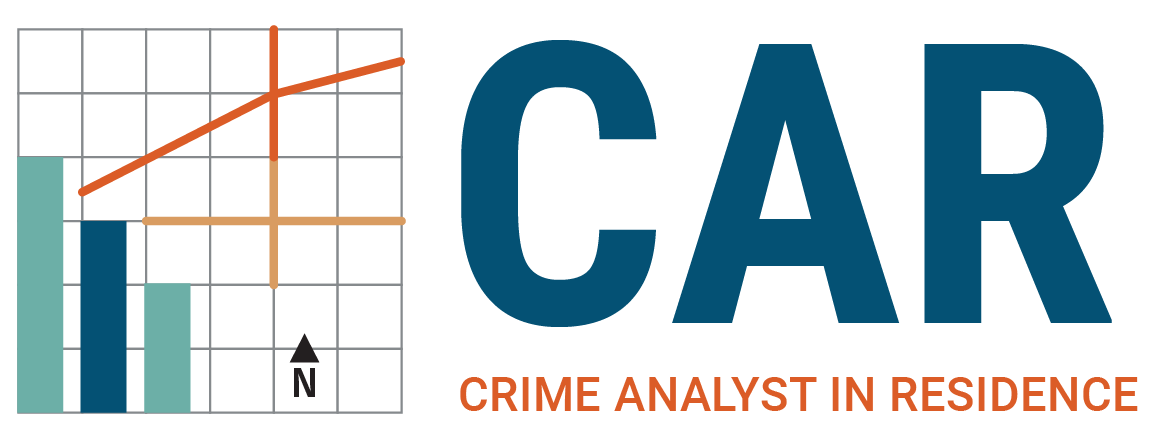Improving Analysis - Advancing Fair, Just, and Effective Policing

Allison Rojek is an instructor in the School of Criminology and Criminal Justice at Michigan State University and the assistant director of Online Degree Programs. She received her master of arts in criminology and criminal justice from the University of Missouri at St. Louis in 2006 and is a former crime/intelligence analyst with the Richland County Sheriff’s Department in South Carolina. Her undergraduate teaching areas include analyzing homicide, criminological theory, and violent crime reduction, and she teaches crime analysis in Michigan State University’s Master of Science in Law Enforcement Intelligence Analysis Program. She has worked with law enforcement agencies across the country since 2005 on violent crime reduction programs as well as other grant-funded research to inform criminal justice policy. She has used her experience as an analyst, instructor, and consultant to create training modules for Project Safe Neighborhoods and SmartSuite on spatial analysis, crime mapping, and the role of crime analysis in crime prevention and reduction. Ms. Rojek also serves as a member of a Cold Case Homicide Review Team, which is a collaboration between Michigan State University and the Michigan State Police to reduce the backlog of cold case homicides in the state of Michigan.

Anthony D’Abruzzo is currently the training coordinator for New York State’s Division of Criminal Justice Services’ Crime Analysis Center Program. In this role, he is responsible for providing training to all crime analysts in the state of New York, and he manages the Crime Analyst Level 1 Certificate Program. Prior to this, he was a research and information analyst for the Philadelphia Police Department. He has a bachelor’s degree from Mercyhurst University and a Master of Public Administration from the University of Pittsburgh.

Charley Giberti is a veteran analyst with experience working in crime analysis and intelligence analysis roles. He worked for the Cincinnati Police Department as an analyst and for the Wichita Police Department as an analyst supervisor before entering the private sector. Over the course of his public-sector career, he has been responsible for implementing problem-oriented policing, evaluating crime reduction programs, developing analytics to enhance crime gun information centers, creating COMPSTAT presentations, and providing link analysis, geographic analysis, and case support. He currently serves as an adjunct professor of criminology at Marymount University and as a Senior Principal Subject Matter Expert at Research Innovations Incorporated. In various roles, he has worked with the Department of Justice Money Laundering and Asset Recovery Section (MLARS), the Department of Defense Office of the Inspector General (OIG), the Army Criminal Investigations Division (CID), the United Nations, police departments throughout North America, large commercial banks, online retailers, and multiple foreign nations to implement next generation intelligence systems. Charley is a long-time contributor to several professional organizations including the International Association of Law Enforcement Intelligence Analysts (IALEIA) and the International Association of Crime Analysts (IACA). He currently serves as an analyst mentor teaching analysts SQL, Microsoft Access, Microsoft Excel, NodeXL, ArcGIS, and other tools for IACA, and he won the 2018 Innovation Award. He has presented at conferences for both IALEIA and IACA over the past 10 years as well as the Department of Defense Intelligence Information System (DODIIS) Conference, the American Society of Criminology, and various regional associations. He has taught crime analysis and criminology courses at the University of Cincinnati and Cincinnati State College.

Empowering law enforcement and the communities that they serve is what drives Christian Peterson. As a leader in the Strategic Services Division of the Portland Police Bureau, he has introduced streamlined processes, tools, and methodologies to help agencies implement effective strategies that align with community concerns and empower agencies to continuously grow and sustain evidence-based practices. His primary areas of focus have been on crime analysis, data governance, and data transparency. His work highlights the need for data integration and understanding. He has worked with gun violence, community engagement, mental health, hot spot policing, and surveying to inform law enforcement practices. He holds a master’s degree in criminology from Portland State University, with additional training in law enforcement planning and intelligence analysis. He is a National Institute of Justice (NIJ) Law Enforcement Advancing Data Science (LEADS) scholar.

Dr. Cory P. Haberman is an associate professor in the School of Criminal Justice and director of the Institute of Crime Science at the University of Cincinnati. He received a PhD from Temple University’s Department of Criminal Justice in 2015, where he worked with a research team and the Philadelphia Police Department on several hot spots policing projects as well as developing the agency’s analytical capacity. Since then, Dr. Haberman has provided technical assistance and evaluation services to aid agencies across the country in implementing crime analysis and crime reduction strategies, such as hot spots policing, focused deterrence, and community-problem oriented policing. In 2019, Dr. Haberman was selected by the National Institute of Justice to be a LEADS academic based on his commitment to evidence-based policing. Dr. Haberman was also awarded the American Society of Criminology, Division of Policing’s 2019 Early Career Award for his contributions to research on policing.

Mike Winslow is a senior police analyst for the Scottsdale (Arizona) Police Department and is currently assigned to Scottsdale’s Family Advocacy Center providing analytical and investigative support to the crimes against persons section. Mike holds a bachelor of science degree in criminal justice and criminology from Arizona State University and brings over 15 years of experience in the field of analytics. He has applied his analytical skills in a wide range of cases throughout his career, including homicide, robbery, sex crimes, and burglary. Mike is also an accomplished speaker and has presented on a variety of analytical topics across the nation. Most notably, Mike was the keynote speaker at the Minnesota Crime Analysis Training Symposium in 2019.

Carlena Orosco, Ph.D. received her doctorate from the School of Criminology and Criminal Justice at Arizona State University. Her dissertation research focused on the strategies and techniques police dispatchers use to de-escalate callers and officers in the field. She previously served as the Research and Planning Supervisor in the Strategic Planning, Analysis & Research Center (SPARC) at Tempe Police Department. Prior to joining Tempe PD, she worked as a Senior Research Analyst for the Arizona Criminal Justice Commission, Statistical Analysis Center. Carlena’s research spans numerous content areas, including de-escalation in policing, police dispatchers, crime analysis, and law enforcement decision-making. Additionally, she worked for nine years as a dispatcher for the Los Angeles County Sheriff’s Department, where she was also an Acting Supervisor and Systems Monitor. Carlena’s subject-matter expertise in policing and crime analysis also led to her selection as a trainer for the UN-led effort to provide crime analysis instruction to new Crime Analysts in the Caribbean. Carlena currently serves on the Editorial Board for Police Practice and Research: An International Journal, and her work can be found in Policing: An International Journal, Journal of Experimental Criminology, American Journal of Public Health, and Justice Quarterly.
